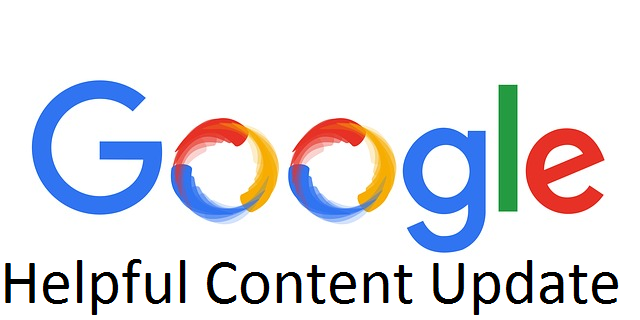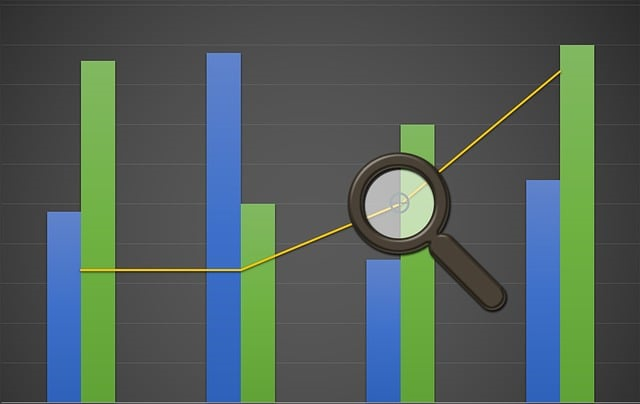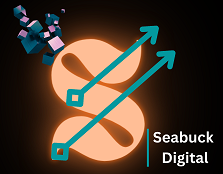I. Introduction

A. Explanation of Google algorithm updates
Have you ever wondered how Google decides which websites to show in its search results? Well, it’s all thanks to a complex algorithm that considers numerous factors to determine the relevance and ranking of websites. Google algorithm updates are changes made to this algorithm that aim to improve search results for users. From minor tweaks to major overhauls, these updates can have a significant impact on website visibility and traffic.
B. Importance of understanding Google algorithm updates
Why is it important to understand Google algorithm updates? Simply put, these updates can make or break a website’s search engine success. Maintaining awareness of these developments can assist website owners, marketers, and SEO experts make necessary adjustments to their plans and stay one step ahead of the competition. You can also make sure that your website is user-friendly by knowing when and how updates happen. It will also guide you follow the best practices for search engine optimization.
C. Purpose of the article
What is the objective of this article? We want to provide you with a complete guide to Google algorithm updates. We’ll cover the history of updates, the different types of updates, Google’s ranking factors, and best practices for monitoring and responding to updates. We’ll also explore future trends in algorithm updates and how they’ll impact search engine optimization. You’ll have a better understanding of Google algorithm updates at the end of this article. A better understanding of Google algorithm updates will make you better prepared to optimize your website for search engine success.
II. Brief History of Google Algorithm Updates

A. Overview of major Google algorithm updates
The question often comes to mind is that how Google decides which websites to show in its search results. Over the years Google has made many updates to its search algorithm. Each update is aimed at improving search results for users. Some updates have been small tweaks, while others have caused a major shakeup in the world of SEO. Below are some notable updates:
- Panda: The Panda update, released in 2011, targeted low-quality, thin-content websites with high ad-to-content ratios. The update focused on identifying and penalizing sites that provided a poor user experience by providing irrelevant or low-quality content.
- Penguin: The Penguin update, released in 2012, targeted websites with spammy backlink profiles. The update aimed to improve the quality of search results by penalizing sites that used manipulative link-building practices.
- Hummingbird: The Hummingbird update, released in 2013, introduced a new search algorithm that focused on understanding user intent rather than just matching keywords. This update enabled Google to better understand the meaning behind search queries and provide more relevant results.
- Mobilegeddon: The Mobilegeddon update, released in 2015, aimed to improve the user experience on mobile devices by giving priority to mobile-friendly sites in search results. This update was significant because it highlighted the importance of having a mobile-friendly website.
- RankBrain: The RankBrain update, released in 2015, introduced an artificial intelligence (AI) system that uses machine learning to better understand the meaning behind search queries. This update has allowed Google to provide more relevant results, even for complex or ambiguous queries.
- BERT: The BERT update, released in 2019, introduced a new natural language processing (NLP) algorithm that can better understand the context of words in a search query. This update has allowed Google to provide more accurate and relevant results for long-tail and conversational queries.
- Helpful Content Update (GHC): Google’s Helpful Content Update is an algorithm update that was released in August 2022. This update is designed to improve the quality and relevance of search results by prioritizing helpful, informative content that directly answers user queries.
To achieve this, Google’s algorithm now takes into account several factors. These factors are the overall quality of a website’s content, the expertise and authority of the authors, and the level of user engagement with the content.
B. Impact of Google algorithm updates on search engine optimization
So, how do these updates impact search engine optimizations? Well, each update can have a significant impact on website visibility and traffic. Websites that follow best practices for SEO and provide a positive user experience are more likely to see a boost in rankings. While those that engage in manipulative tactics are likely to see a decline.
For website owners, marketers, and SEO professionals, keeping up with these updates are crucial. It allows them to adjust their strategies and ensure that their website is optimized for the latest ranking factors.
C. Timeline of Google algorithm updates
Google Search Engine was launched in 1998. Since then there have been numerous updates to its search algorithm. While it’s impossible to list them all, here are some of the most significant updates:
2003: Florida update
2011: Panda update
2012: Penguin update
2013: Hummingbird update
2015: Mobilegeddon update
2019: BERT update
2022: Helpful Content Update (GHC)
Keeping up with these updates can be a challenge to any digital marketer. It’s important to stay informed to ensure your website is optimized for success.
III. Types of Google Algorithm Updates

It’s critical to remember that Google’s algorithm modifications can significantly affect the visibility and search engine rankings of your website. You may take action to adapt and preserve your rankings by being aware of the different updates kinds and how they may impact your website. Google’s algorithm updates can be categorized into three main types: core updates, content-specific updates, and technical updates.
A. Core algorithm updates
Core algorithm updates are broad changes that can impact many different aspects of search results, such as relevance and quality. For example, if you notice a decrease in traffic or rankings after a core algorithm update then you may need to reassess your SEO strategy. After reassessing, you need to make changes to improve your website’s relevance and quality. They often require webmasters like you to make significant adjustments to your SEO strategies to maintain your rankings.
B. Content-specific updates
Content-specific updates, as the name suggests, are designed to improve the relevance and quality of specific types of content. This specific content can be local search results or news articles. These updates can affect how search results are displayed and can sometimes require changes to the way your content is structured or presented.
C. Technical updates
Technical updates involve changes to the way Google’s algorithms process and interpret information on your website. For example, Google’s mobile-first indexing update prioritizes websites that are optimized for mobile devices. Technical updates can require webmasters like you to make changes to your website’s code or design to comply with the new requirements.
By staying up-to-date on Google’s algorithm updates you can make necessary changes to your website. The knowledge of algorithm updates will help you to ensure that your website remains visible and competitive in search engine rankings.
IV. Understanding Google’s Ranking Factors

Understanding Google’s ranking factors is crucial for any website owner who wants to improve their search engine visibility. When deciding search engine rankings, Google takes several important elements into account.
A. Importance of relevance and authority
There are two most important factors to be considered and they are relevance and authority. Your website’s content should be relevant to the search terms users are entering, and it should demonstrate authority in your field. This can be achieved through high-quality content, expert opinions, and other factors that demonstrate your website’s expertise and authority.
B. User experience factors
Rankings in search engines are also heavily influenced by user experience. Google wants to make sure that users have a positive encounter with your website. Your rankings may be impacted by a variety of elements, including your website’s speed, navigation, and mobile friendliness.
C. Mobile-first indexing
Mobile-first indexing is another important consideration. Internet users are increasing day by day and most of them are using mobile devices. This is the basic reason why Google is now giving importance and priority to mobile-friendly websites in search engine rankings. This means that mobile responsiveness is becoming a main ranking factor for websites. If you want to maintain or improve your rankings then you must give importance to mobile-friendliness.
You must focus on these key factors and make necessary improvements to your website. You must make sure that your website is both user-friendly for visitors and optimized for search engine rankings.
V. How to Monitor and Respond to Google Algorithm Updates

Keeping track of Google’s algorithm updates is essential for any website owner. Knowing how to monitor and respond to these changes can make all the difference in your website’s search engine ranking.
A. Tracking website metrics
So how can you do this? First, start by tracking your website metrics. Monitoring your website’s traffic, click-through rates, bounce rates, and other critical performance metrics fall under this category.
You can spot any abrupt changes or dips in traffic that might be brought on by an algorithm update by keeping an eye on these data.
B. Analyzing website traffic changes
It’s time to study the traffic changes once you’ve noticed a shift in your website’s stats. This involves examining your website’s search rankings and identifying which keywords are driving traffic to your site. By doing this, you can identify the parts of your website’s pages or content that have been impacted by the upgrade.
C. Making adjustments to website content and optimization
After identifying which pages or content have been impacted, it’s important to make adjustments to your website’s content and optimization. This could entail updating your website’s metadata, enhancing the value of your content, or making it mobile-friendly.
You may ensure that your website stays competitive in the ever-evolving world of Google’s search algorithms by doing the measures outlined below.
VI. Best Practices for Adapting to Google Algorithm Updates

A. Focusing on high-quality content
Concentrating on producing valuable, relevant content for your target audience is one of the best strategies for adjusting to Google algorithm adjustments. This entails creating compelling, educational, and thoroughly researched content.
B. Prioritizing user experience
Another important practice is to prioritize user experience on your website. This includes optimizing your website for speed, mobile responsiveness, and easy navigation. Additionally, it entails ensuring that your website is accessible to visitors with impairments and that your material is simple to read and comprehend.
C. Keeping up-to-date with algorithm changes
Finally, it’s critical to keep up with Google algorithm updates and modify your SEO techniques as necessary. This means regularly monitoring your website analytics and search engine rankings, as well as keeping an eye on industry news and updates. By staying informed and adapting to changes, you can maintain and improve your website’s search engine visibility over time.
VII. Future Trends in Google Algorithm Updates

A. Predictions for future updates
Several tendencies seem likely to persist even though we are unable to predict exactly how Google’s algorithm upgrades will look in the future. It’s possible that future updates would give preference to content that is written in a more conversational tone and gives more contextual information. For instance, Google has been focusing more on comprehending natural language and context. The importance of mobile-friendliness is another trend, therefore it’s likely that Google will keep giving mobile-friendly websites priority.
B. Importance of ongoing optimization and monitoring
Google’s algorithms aren’t going away any time soon, that much is certain. This implies that it’s crucial to be abreast of the most recent updates and continually tweak your website. This includes monitoring your website’s performance metrics, such as traffic and engagement, as well as staying informed about industry news and best practices. By monitoring your website you can ensure that your website remains optimized for search and continues to rank well in the future.
C. Changes to SEO practices in response to algorithm updates
As Google’s algorithm continues to evolve, so too must our SEO practices. While new techniques may arise that are more suited to the present state of search, certain strategies that may have been successful in the past may no longer be so. For example, in response to recent updates, we’ve seen more emphasis placed on user experience and content quality, which means that strategies like keyword stuffing and link schemes are no longer effective. We should put more effort into producing high-quality content that is optimized for both people and search engines, as well as constructing authoritative backlinks naturally and organically.
VIII. Conclusion
A. Recap of Google Algorithm Updates
Alright, we’ve come to the end of our article on Google Algorithm Updates. Let’s quickly recap what we’ve learned so far.
- Firstly, we explained what these updates are and why it’s essential to keep track of them. Then we went through a brief history of the major algorithm updates that have happened over the years and how they’ve impacted SEO.
- We then talked about the different types of updates, such as core algorithm updates, content-specific updates, and technical updates, and what they entail.
- Next up, we discussed the ranking factors that Google takes into account when determining search results. We highlighted the importance of relevance and authority, user experience factors, and mobile-first indexing.
- We then moved on to how you can monitor and respond to algorithm updates by tracking website metrics, analyzing website traffic changes, and making adjustments to website content and optimization.
- We also shared some best practices for adapting to algorithm updates, such as focusing on high-quality content, prioritizing user experience, and keeping up-to-date with algorithm changes.
- Lastly, we looked into future trends in Google Algorithm Updates, and what we can expect in the future. We emphasized the importance of ongoing optimization and monitoring and how SEO practices might change in response to algorithm updates.
B. Importance of staying informed and adapting to changes
To sum up, we want to emphasize how crucial it is to keep educated and adjust as changes come about. Google’s algorithm updates will continue to change, so it’s important to monitor these updates to keep your website’s search engine optimization strong.
C. Final thoughts on the impact of Google algorithm updates on search engine optimization.
So there you have it, our take on the impact of Google Algorithm Updates on search engine optimization. We sincerely hope that this post was educational and useful to you as you navigated the ever-evolving world of SEO.
Read More
How to find Trending Keywords on YouTube – Seabuck Digital
Google Analytics 4 : The Ultimate Guide for Digital Marketers – Seabuck Digital
How to make featured snippets: Google’s Overview – Seabuck Digital

